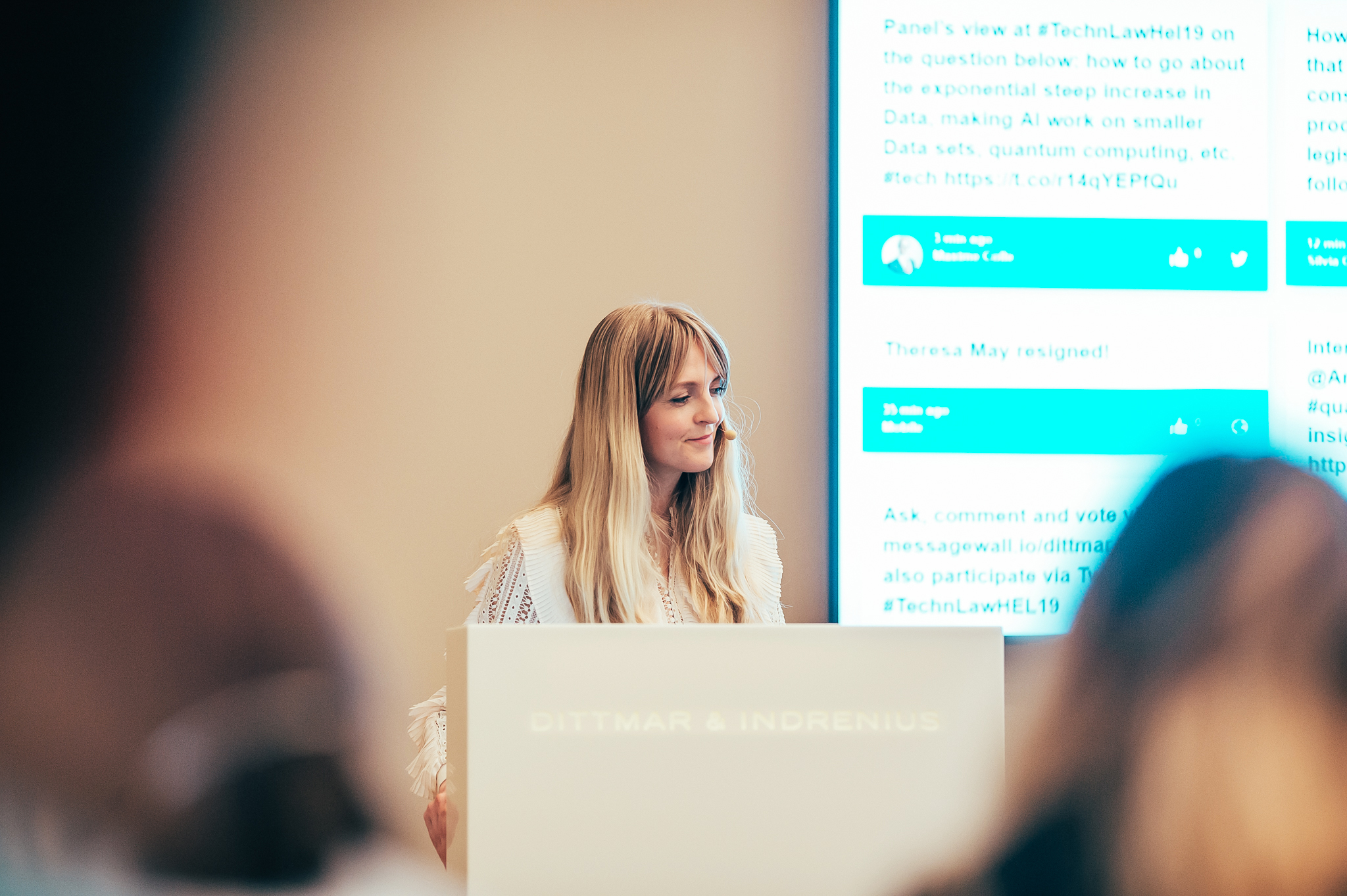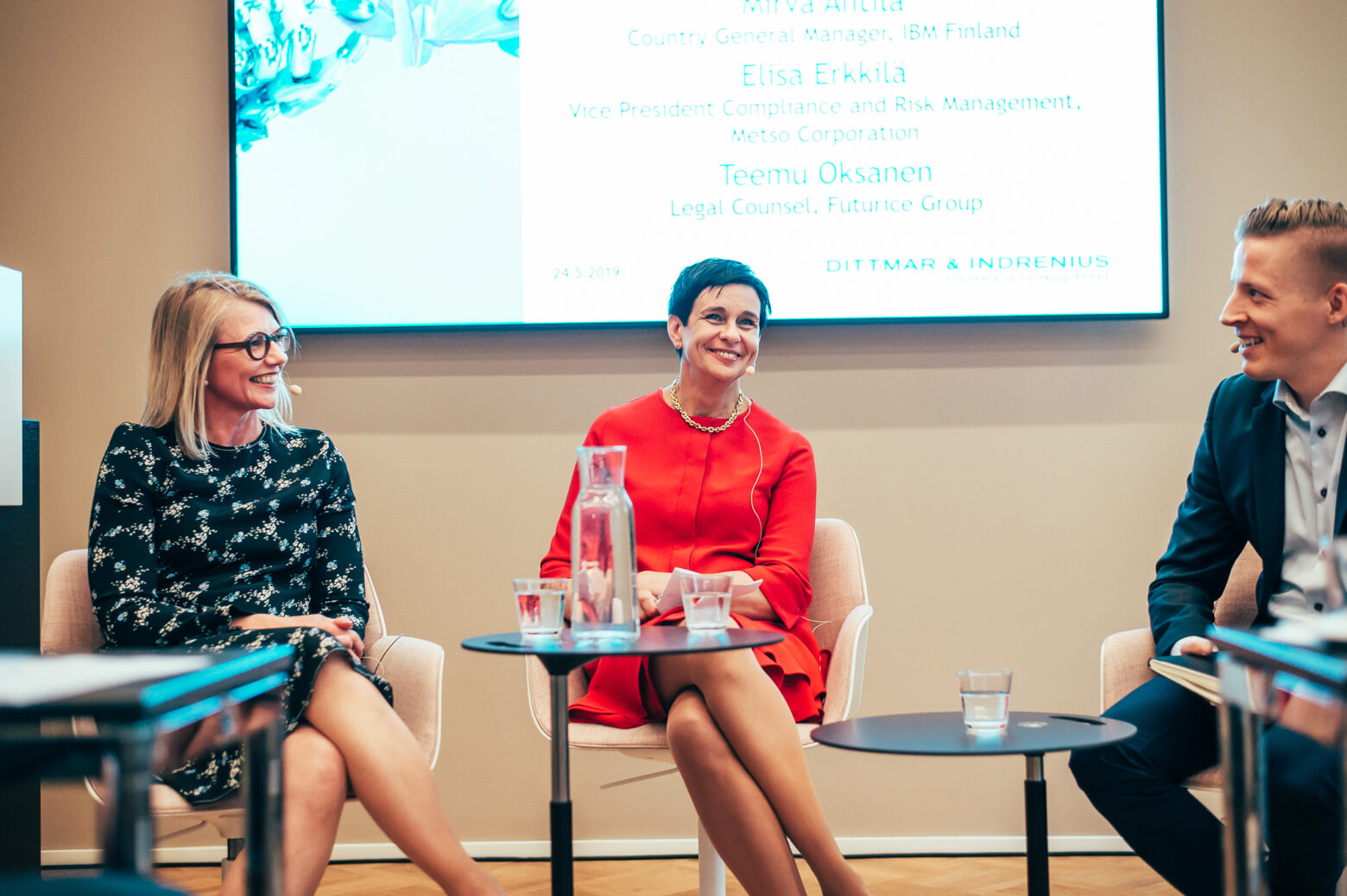Imagine what would happen if we would boldly embrace AI, automate all routine tasks and free our intelligence to strategic insight for the famous “added value”. It would mean the renaissance of lawyering in its finest sense and be the rebirth of consiglieri – the trusted advisor.
So why then, why worry seeing eye to AI?
When we talk about AI, we talk about efficiency, scalability and new business opportunities. We also talk about AI changing everything. We have self-driving cars, robot nurses and Google’s AlphaGo, which beat the world’s Go grandmaster in the ancient Chinese boardgame (a much harder game to play or automate than chess they say) by a surprising early move that turned out to be novel and creative.
Researchers predict that within few decades half of current jobs will be automated – and not just jobs of truck drivers but also those of doctors and journalists. In the world of law firms, automation will help us do repetitive, labour-intensive tasks faster and more accurately and, obviously, is great news to everyone. So good job, AI!
But what if the machine outsmarts us? And when does it happen?
Tech ‘n’ Law Panel
Accelerating technological advancements and AI were the key topics in an interesting panel discussion at Tech ‘n’ Law in Helsinki Seminar held on May 24th, 2019. In the panel Mirva Antila, Country General Manager of IBM Finland, Vice President Compliance and Risk Management Elisa Erkkilä of Metso Corporation and a D&I alumnus, Legal Counsel Teemu Oksanen of Futurice Group shared their insight and experiences of the evolving business environment, technological developments, changing client expectations and their views on the gap between good intent and practice in terms of adopting technology in the law firm scene.
In the following few chapters I share my personal views and thoughts that crossed my mind while I had the honour and joy of serving as the moderator of the seminar.

“Unless they demand it”
Today, AI and digital customer experience may not yet be mainstream in the world of law firms but they are definitely top of mind. Until recently, legaltech has had a tendency to remain a secondary concern to law firm leaders “unless the clients clearly demand it“. For a long time, they did not.
Why was it? Maybe because the clients often are lawyers themselves, perhaps former colleagues or “way back” friends with the exact same or quite similar educational background. Maybe the clients have not been able to imagine the role of technology in their law firm assignments, since for a long time all law firms had the exact same service design.
Today, clients are actively demanding technology for efficient and cost-effective services in tandem with new generations gradually climbing the corporate ladder and becoming decision makers in more diversified client teams. Consequently, the way law firms are creating competitive advantage is changing too.
Besides obvious pressure for efficiency and value for money, what matters most to the clients is the amount of energy they have to expend – the less, the better. To fix this, law firms seek to improve their client experience across their increasingly digitalised client journeys offering transparency and ease of interaction 24/7.
Expertise trap as a bottleneck
It is a common perception that especially more experienced lawyers risk falling into an “expertise trap” that can slow down service innovation and adoption of new technologies. The expertise trap means relying on what has worked before, though in a world quite different from today. The expertise trap is strengthened by being unfamiliar with the new technologies in the industry and/or with the technologies that the clients are already using.
The panel’s view on this trap and the need for constant development was clear: this is not the time to stand stuck in a bubble. What has worked for even the best of the best experts before may not be enough for today’s clients operating in global markets.
It’s the clients and the competitors who set the level of the game.
Creativity and differentiating
Being agile and attuned to what is happening in the market is an imperative in building a modern law firm. Whereas differentiating with impeccable legal advice is difficult, modern service experience can (coupled with impeccable legal advice!) be a strong differentiator.
In terms of improving the customer experience, the panel encouraged lawyers to be more creative with technology because they know how to be creative with law. However, embracing experimentalism and creative challenges in relation to technology does not come easy in this business. For starters, it requires a bit of a bohemian attitude: tolerating mistakes and working with crazy, unfinished ideas.
The role of creativity and fresh ideas – both in and outside of legal rules – will have tremendous value in the coming years in developing the winning customer experience. Obviously, customer experience is not all about being obsessed with new technologies: we’re talking about understanding the clients’ business and, with law as our tool, being able to serve as enablers of our clients’ big ideas. However, in the years to come the role of technology will be central in the delivery of excellent legal advice.
Technologies available are innovative by design. The ways that law firms deploy those technologies should be much more creative because the only way to differentiate is to be unique. Nothing unique will be achieved if we settle for minor improvements and doing things “a bit differently” than before.
WANTED: New skills
When we look at the forces that are changing the legal market and the future of work in general, thinking mostly about AI and technology is obviously too narrow a focus.
Besides accelerating technological advancements, we’re talking about transitioning working models, changing employee and client expectations and, consequently, growing demand for new skills.
Future lawyers and law firms will still need deep legal knowledge and classical skills but, increasingly, they will also need to have strong interpersonal skills coupled with broad knowledge of other fields, business and society allowing for better collaboration with diverse teams. Should the future lawyers know how to code? It wouldn’t hurt but I don’t think so. However, they will need to be tech savvy.
The great challenge for leaders and leadership is to lead these new skills and bring forth a new kind of cross-silo team intelligence and new kind of braveness in imagination that will inspire and hearten everyone to be creative and pioneer with technology, service design – and yes, law.
This is how it goes
They say that people tend to overestimate technology in the short-run but underestimate it in the long run. Looking into the crystal ball, here are my two cents:
In the short-run, we are not going to be replaced by AI. Today’s algorithms are mostly reliant on data regarding past experiences. The past, however, may be very different from the future our clients seek. Delivering the best possible legal advice in complicated, highly consequential matters is still quite different from trying to predict whether it’s going to be a beautiful, hot summer in Helsinki in 2019.
Very soon though we are going to be paired with AI and technology in client work and utilise them every day – and it will feel completely natural. Just think about our phones that have replaced cameras, photo albums, watches, wallets, dictionaries, street-maps…
In the long-run – who knows! Two things are certain: 1) lawyers will need to be experts in understanding and adapting to constant change, and 2) our values, the human ability for empathy, moral choices and creativity will be of greater value than ever before. We will be the mind and the mind-set behind the machine.
“You never actually own a Patek Philippe, you merely look after it for the next generation“,
is one of my favourite brand campaigns. Had I chosen a different career path and ended up as a law firm partner, I’m quite convinced I would boldly invest in technology, strengthen my firm’s culture of collaboration and nurture creativity. Lucky as I am, D&I – the firm I do call mine – is doing exactly that. We are thinking ahead.
Key take-aways
#pioneer
Prioritise pioneering new solutions instead of just optimising what is.
#newskills
Hire and nurture creativity and broad perspectives.
#humanstrengths
We are the mind and the mind-set behind the machine.
